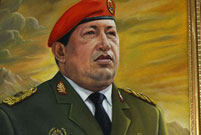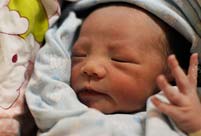 PLA aerobatic team arrives in Russia for air show
PLA aerobatic team arrives in Russia for air show
 Fairytale destinations around world
Fairytale destinations around world
 Tranquil scenery of Baiku Co Lake in Tibet
Tranquil scenery of Baiku Co Lake in Tibet
 World in photos: (Aug.12-Aug.18)
World in photos: (Aug.12-Aug.18)
 Lady of mystery: Female SWAT team in prison disclosed
Lady of mystery: Female SWAT team in prison disclosed  Art-like scenery of Zoige
Art-like scenery of Zoige
 Art exhibition in tribute to Chavez held in Venezuela
Art exhibition in tribute to Chavez held in Venezuela
 Reservoirs in S China start to release floods
Reservoirs in S China start to release floods
 Top 10 naked hotels in the world
Top 10 naked hotels in the world
As a university professor and graduate advisor, I have often had to counsel students on what it means to "study" in an institution of higher learning, especially in graduate school. The first question the typically "good" students ask after attending the first session of my seminars is invariably: How could I identify possible exam questions from what transpired in the classroom instruction process?
When assured that the emphasis of learning is on critical reading, creative thinking and discussions, they raise the next question: Can you deliver a lecture that outlines the complete contour of the field or subject?
Most students are not used to thinking on their own, or participating in and contributing to class discussions. They would rather enjoy being fed with "definite" knowledge by instructors. But they have to change their idea of what "knowledge" means, which assumes greater importance as they advance in their levels of education. Sometimes, I tell them the truth: none of the "theories" we learn should be regarded as "definite truth".
They are surprised that I, known in the faculty for delivering lectures in two languages, often abstain from speaking too much in class but am eager to facilitate students' discussions and inspire them when they run out of creative ideas. I have to explain to them that a mediocre teacher tells, a good teacher explains, a superior teacher demonstrates, while the best teacher inspires. We do not profess to be the best teachers. But to be a competent teacher, one does require a lot of inspiration and inspiring, instead of the ability to flaunt one's knowledge or show off one's eloquence.
Education experts believe that 30 percent of education is inspiration, and the rest is waiting. Gradually, as the semester and the course move on, students who adapt well start to have fun in critical reading, preparing for presentations, participating in discussions, and enjoying the fruits of creative thinking.
Some of my best students have told me that after taking their initial college courses in other institutions, they ended up with a mind full of other people's ideas and theories picked up from textbooks and lectures. In contrast, my classes leave them with a stimulated mind full of "theories" of their own, which could be put to test during their future course of study.

 Fairytale destinations around world
Fairytale destinations around world Top 10 Chinese provinces for the well-heeled
Top 10 Chinese provinces for the well-heeled  Fan Bingbing poses for Malaysian magazine Citta Bella
Fan Bingbing poses for Malaysian magazine Citta Bella Art exhibition in tribute to Chavez held in Venezuela
Art exhibition in tribute to Chavez held in Venezuela Wild dream: Hell-like training for bodyguard
Wild dream: Hell-like training for bodyguard  Zhang Xinyi covers COSMOPOLITAN
Zhang Xinyi covers COSMOPOLITAN China’s weekly story
China’s weekly story  The story of a savior sibling
The story of a savior sibling A collection of bizarre rooftop buildings around China
A collection of bizarre rooftop buildings around China Escort taskforce holds live-fire training
Escort taskforce holds live-fire training Enjoy your time in Maldives
Enjoy your time in Maldives Group wedding ceremony in Xinjiang
Group wedding ceremony in Xinjiang The world's biggest pure gold mascot
The world's biggest pure gold mascot Those embarrassing copycat buildings
Those embarrassing copycat buildings Weekly Sports Photos
Weekly Sports PhotosDay|Week|Month